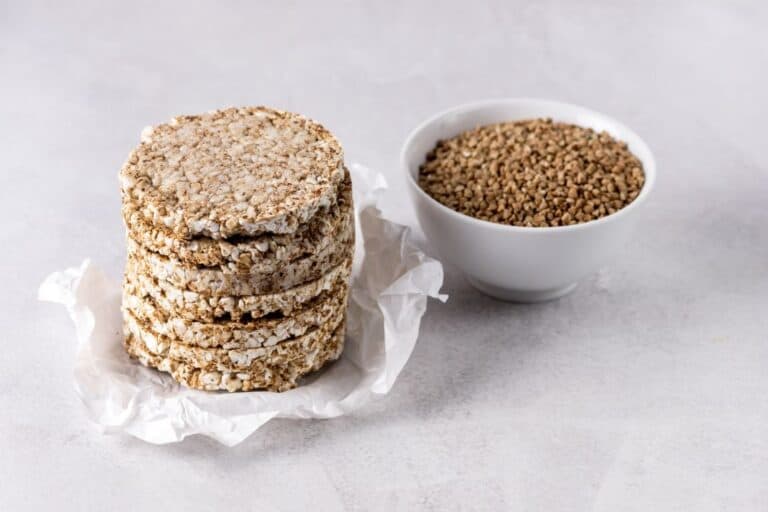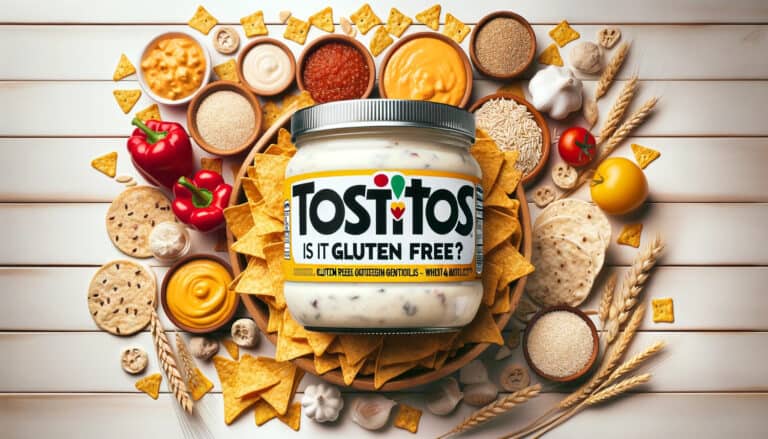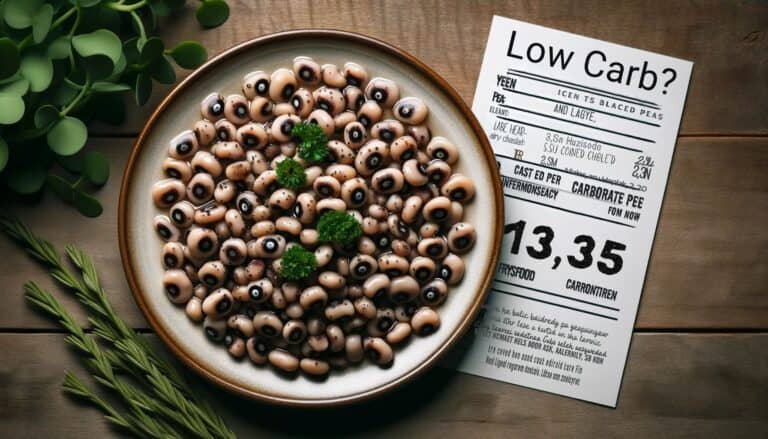Celiac Awareness: Is Kombucha Gluten Free Health-Ade
Kombucha, a probiotic drink derived from sweetened tea, mainly black or green tea, and fermented with a symbiotic colony of bacteria and yeast (known as a kombucha SCOBY), has been hailed for its numerous health benefits.
In the United States, kombucha tea has become popular for those seeking a healthier alternative to sodas and other sugary drinks. While the health benefits of kombucha range from improved digestive health to better blood sugar levels and a boost to the immune system, many wonder: Is kombucha gluten free?
The short answer is, typically, yes. Pure kombucha is made solely from organic tea leaves and sugar; the SCOBY should be gluten-free. However, the finished product’s gluten status can be influenced by several factors.

Wheat flour and other gluten-containing grains are not standard ingredients in traditional kombucha recipes. The main difference arises when considering flavored or specialty kombuchas, like kombucha beer or bloody mary kombucha.
Some brands of kombucha may use gluten-containing foods or additives in their recipes. For instance, soy sauce, which often contains gluten, might be introduced for a unique taste.
Therefore, it’s crucial to read the nutrition facts and ensure the product is certified gluten-free if one has gluten sensitivity or celiac disease, an autoimmune disorder triggered by gluten.
There’s good news for those who brew their kombucha at home. One can quickly concoct a gluten-free recipe by using organic ingredients, such as various organic herbs, and ensuring that any additional components like apple cider or flavorings are gluten-free.
For those particularly health-conscious, homemade kombucha offers control over every ingredient, including organic tea leaves and sweetened water.
Now, what about alcoholic kombucha? Both kombucha beer and hard kombucha might contain more gluten, especially if barley or other gluten-containing grains are involved in fermentation.
Again, the best way to determine if an alcoholic kombucha is gluten-free is to check the label or ask the manufacturer directly.
Kombucha is indeed a treasure trove of health benefits. It’s packed with amino acids, good bacteria, and other essential nutrients that can benefit weight loss, joint pain, and even symptoms of irritable bowel syndrome, like abdominal pain.
However, while anecdotal evidence suggests kombucha is good for alleviating gastrointestinal symptoms, scientific evidence is still emerging. It’s worth noting that while kombucha offers probiotic benefits, those with severe health problems should approach it with caution and seek proper treatment.
While kombucha is generally gluten-free, exceptionally pure, or organic, it’s vital to be cautious. Whether enjoying a glass bottled kombucha from the store or sipping your homemade blend, always be informed about the ingredients and ensure it’s 100 percent gluten-free, especially if you suffer from gluten sensitivities.
Remember, kombucha is not just a weight loss aid or an alcoholic beverage; it’s a probiotic-rich drink that, when chosen wisely, can be a delightful and nutritious addition to one’s diet.
Gluten Content of Kombucha
Kombucha, a popular fermented drink, is often touted for its health benefits, including its potential benefits for those with gluten sensitivity. Additionally, kombucha is usually recommended as a gluten-free option for those following a gluten-free diet.
But what about its gluten content? For individuals with celiac disease or gluten sensitivity, knowing whether kombucha is safe to consume is crucial. Let’s delve into the topic and explore the gluten content of Health-Ade kombucha.
Kombucha Basics: Traditionally, gluten-free kombucha is made by fermenting tea, sugar, and a symbiotic culture of bacteria and yeast (SCOBY). During fermentation, the gluten-free SCOBY consumes the sugar and produces various compounds that give gluten-free kombucha its unique taste and potential health benefits.
Gluten Breakdown: One concern regarding kombucha is whether it contains gluten. Fortunately, fermentation plays a significant role in breaking down gluten proteins in the ingredients.
As a result, through lab testing, many commercially available kombuchas have been found to contain minimal to no detectable levels of gluten.
Cross-Contamination Risks: While most commercially available kombuchas are considered safe for those with celiac disease or gluten sensitivity, there is still a small risk of cross-contamination during production or bottling.
This can occur if equipment used in the process comes into contact with gluten-containing substances or if proper cleaning protocols are not followed diligently.
To mitigate this risk, reputable manufacturers like Health-Ade take necessary precautions to ensure their products remain gluten-free. They implement strict cleaning procedures and maintain separate production lines for their gluten-free offerings.
It’s important to note that while Health-Ade and other brands strive to provide accurate labeling information regarding allergens such as gluten, consumers should always check product labels for any potential changes or updates.
Is kombucha gluten free for celiacs?

Kombucha has recently gained popularity as a health beverage, but whether it is gluten-free for individuals with celiac disease remains. While lab tests have shown low or undetectable levels of gluten in kombucha, there are still factors to consider before including it in a strict gluten-free diet.
Cross-Contamination Risks
One concern for celiacs is the potential for cross-contamination during the production of gluten-free kombucha. Although the ingredients used to make kombucha are naturally gluten-free, there is a risk of contamination if the fermentation occurs in an environment where other gluten-containing products are also produced.
This can happen when shared equipment or facilities are not thoroughly cleaned between batches, which can be problematic for those following a gluten-free diet.
Consultation with Healthcare Professionals
Due to these cross-contamination risks, individuals with celiac disease must consult their healthcare professionals before incorporating gluten-free kombucha into their diet.
A healthcare professional can provide personalized advice and guidance based on an individual’s needs and sensitivities, including gluten-free options.
Monitoring Personal Tolerance and Reactions
Even if lab tests show that a particular brand of kombucha has low levels of gluten, those with celiac disease need to monitor their tolerance and reactions.
Each person’s sensitivity to gluten varies, and what may be considered safe for one individual may cause symptoms or harm another. It is crucial to pay attention to any adverse effects after consuming gluten-free kombucha and adjust accordingly.
Exploring the Nutritional Profile of Kombucha
Kombucha, a gluten-free fermented tea beverage, has gained popularity recently due to its potential health benefits and unique flavor profiles. Let’s delve into the nutritional profile of gluten-free kombucha and uncover why it has become a favorite among health-conscious individuals.
Rich in Probiotics, Organic Acids, Vitamins, and Minerals
One of the critical reasons for the rising popularity of gluten-free kombucha is its abundance of probiotics. These beneficial bacteria promote gut health by maintaining a balanced gluten-free microbiome.
Fermentation produces organic acids like acetic and lactic acid, making them suitable for gluten-free individuals.
These gluten-free acids contribute to kombucha’s tangy taste and offer potential health benefits such as improved digestion and enhanced immune function.
Moreover, gluten-free kombucha contains essential vitamins and minerals for overall well-being. B vitamins in this gluten-free fermented tea support energy metabolism and immune function.
They play a crucial role in converting gluten-free food into energy and aiding various biochemical reactions within the body.
With its impressive vitamin content, including vitamins B1 (thiamine), B2 (riboflavin), B3 (niacin), B6 (pyridoxine), and B12 (cobalamin), gluten-free kombucha provides a natural boost to your daily nutrient intake.
Antioxidants for Reducing Inflammation and Fighting Oxidative Stress
Gluten-free Gluten-free Kombucha boasts antioxidants that have been associated with numerous health benefits. Antioxidants help combat oxidative stress caused by free radicals in our bodies.
By neutralizing these harmful molecules, antioxidants may reduce inflammation levels throughout the body, making them a beneficial option for those following a gluten-free diet.
Furthermore, some studies suggest that certain gluten-free kombucha compounds may possess antimicrobial properties against harmful bacteria like E.coli and Candida yeast strains.
However, more research is needed to understand how these gluten-free components interact with our bodies.
Controlling Sugar Content through Fermentation
The sugar content of gluten-free kombucha can vary depending on the fermentation time. More extended fermentation periods tend to result in lower sugar levels, making it a suitable option for individuals watching their gluten-free and sugar intake.
Alternatively, gluten-free home-brewing methods provide the flexibility to control the sweetness of your gluten-free kombucha by adjusting fermentation times and adding natural flavors like ginger or fruit juices.
It’s important to note that alcoholic gluten-free kombucha, also known as hard gluten-free kombuchas, may contain higher levels of alcohol due to prolonged fermentation.
These gluten-free variants resemble gluten-free beer more closely and should be consumed responsibly.
Why kombucha is a safe option for celiacs
Commercial brands offer reliable options for patients seeking a gluten-free beverage alternative for celiac disease.
Finding safe and enjoyable gluten-free food and drink options for individuals with celiac disease can be challenging.
However, with proper precautions, commercial kombucha brands provide a reliable choice for those looking for a gluten-free beverage alternative.
Kombucha is a gluten-free fermented tea with a unique brewing process, resulting in a tangy and fizzy drink packed with beneficial probiotics.
The fermentation process reduces the presence of potentially harmful substances like phytic acid found in grains.
One of the reasons why kombucha is considered safe for celiacs is its gluten-free fermentation process.
During fermentation, the gluten-free gluten-free SCOBY (Symbiotic Culture Of Bacteria and Yeast) consumes sugars in gluten-free tea, producing gluten-free organic acids like lactic acid and acetic acid.
These gluten-free acids are known to break down phytic acid found in gluten-free grains, reducing its presence in the final gluten-free product.
Phytic acid can interfere with nutrient absorption and may cause discomfort for individuals following a gluten-free diet due to celiac disease.
By fermenting kombucha, the potentially harmful substances in black and green tea are diminished, making it easier on the digestive system. This is especially beneficial for those who follow a gluten-free diet.
This is especially beneficial for those who follow a gluten-free diet. The fermentation process is responsible for this transformation.
Kombucha’s probiotic content may support gut health, which is particularly important for individuals with celiac disease.
Another reason why kombucha is considered a safe option for celiacs is because of its gluten-free and probiotic content. Probiotics are live microorganisms that provide health benefits when consumed in adequate amounts.
They can be beneficial for individuals following a gluten-free diet. They can be helpful for individuals following a gluten-free diet.
They play an essential role in maintaining gluten-free gut health by promoting the growth of beneficial bacteria and inhibiting the growth of harmful ones.
For individuals with celiac disease who often experience digestive issues due to damage to their small intestine lining caused by gluten consumption, incorporating probiotics into their diet can be beneficial.
Kombucha’s natural fermentation process produces high levels of gluten-free probiotics, making it an ideal choice to support gut health.
Regular lab testing and quality control measures ensure gluten-free claims are accurate.
To ensure the safety of celiacs, reputable kombucha brands implement regular lab testing and stringent quality control measures to provide gluten-free products.
These tests are conducted to verify that the final product meets gluten-free standards set by regulatory bodies.
By adhering to these rigorous procedures, kombucha manufacturers can provide accurate gluten-free claims on their products, giving individuals with celiac disease peace of mind when consuming kombucha.
Understanding the brewing process of gluten-free kombucha
Gluten-free kombucha is a popular beverage choice for individuals with celiac disease or gluten intolerance. It offers a refreshing and gluten-free probiotic-rich alternative to traditional kombucha.
To ensure the production of genuinely gluten-free kombucha, it is crucial to understand the brewing process and how it eliminates any traces of gluten.
Brewing Process
The first step in making gluten-free kombucha involves careful sourcing of ingredients. Gluten-free tea leaves, such as green tea or herbal teas, are used instead of those derived from barley or wheat.
These tea leaves are free from gluten proteins that could potentially contaminate the final product.
Next, a gluten-free sugar source is added to feed the yeast during fermentation. It is essential to use a gluten-free sugar option, like cane sugar or coconut sugar, to maintain the integrity of the final product.
The SCOBY (Symbiotic Culture Of Bacteria and Yeast). In the case of gluten-free kombucha, a gluten-free SCOBY is used. This ensures that no cross-contamination occurs during fermentation.
Fermentation Process
During fermentation, yeast consumes sugars, producing carbon dioxide and alcohol as byproducts. The yeast also breaks down proteins, including any residual gluten that might be present in the initial ingredients.
The fermentation process typically takes around one to two weeks. Throughout this time, enzymes produced by bacteria and yeast further break down complex molecules into simpler compounds. As a result, any remaining traces of gluten are significantly reduced.
Quality Assurance Protocols
Quality assurance protocols should be implemented throughout every production stage to maintain the integrity of producing truly gluten-free kombucha on a larger scale.
This includes rigorous testing for potential cross-contamination during ingredient sourcing and manufacturing processes.
Manufacturers must follow strict guidelines and adhere to good manufacturing practices (GMP) when producing gluten-free kombucha. This ensures the final product is safe for individuals with gluten intolerance or celiac disease.
By implementing these quality assurance protocols, manufacturers can provide consumers with a reliable and trustworthy gluten-free kombucha option.
Differentiating between regular and hard kombucha for celiacs
Regular and hard kombucha are two popular variations of this fermented beverage, made with black and green tea. The fermentation process is used to create both types.
While both have gained attention for their potential health benefits, individuals with celiac disease must understand their differences.
Celiacs must exercise caution when consuming any food or drink containing gluten, as even trace amounts can trigger adverse reactions.
Regular kombucha typically undergoes a shorter fermentation period compared to hard kombucha. During fermentation, yeast consumes sugar and releases carbon dioxide and alcohol as byproducts.
The longer the fermentation process, the higher the alcohol content in the final product. Regular kombuchas generally have an alcohol content below 0.5% and are considered non-alcoholic by most standards.
However, it is crucial to note that some individuals with celiac disease may still experience adverse effects from consuming even small amounts of alcohol due to its potential impact on intestinal permeability.
On the other hand, hard kombuchas are specifically brewed to contain higher levels of alcohol. To achieve this, additional ingredients such as fruit juice or extracts are often added during production for flavoring purposes.
These additives contribute not only to increased alcohol content but also enhance taste profiles. While many hard kombuchas claim to be gluten-free, there is a risk of cross-contamination during production or the potential inclusion of gluten-containing additives in some brands.
Celiacs should be cautious when consuming hard kombuchas due to these factors. Cross-contamination can occur if manufacturers use shared equipment or facilities that handle gluten-containing ingredients during production.
Certain flavorings or extracts used in hard kombuchas may contain hidden sources of gluten that could pose a risk for individuals with celiac disease.
Celiacs should read labels carefully and choose verified gluten-free options to ensure safe consumption. Look for certifications or statements on the packaging that confirm the product is gluten-free.
Some brands undergo rigorous testing to ensure their products meet strict gluten-free standards, providing peace of mind for those with celiac disease.
Celiac Awareness and the Gluten-Free Status of Kombucha
Now that we’ve explored the gluten content of kombucha, its nutritional profile, and why it is a safe option for celiacs, let’s dive deeper into understanding the brewing process of gluten-free kombucha and differentiating between regular and hard kombucha for celiacs.
It starts with carefully selecting gluten-free ingredients such as tea leaves and sugar. These ingredients undergo fermentation by adding a SCOBY (symbiotic culture of bacteria and yeast), which consumes most of the sugars during fermentation.
As a result, the final product contains minimal residual sugar and is naturally low in gluten content.
Regular kombucha typically contains less than 20 parts per million (ppm) of gluten, which falls within the FDA’s guidelines for labeling a product as “gluten-free.” However, it’s important to note that some brands may produce hard kombuchas with higher alcohol content.
If you have celiac disease or are highly gluten-sensitive, check the label or contact the manufacturer to ensure their specific product meets your dietary needs.
In conclusion, if you have celiac disease or follow a strict gluten-free diet, many reputable brands like Health-Ade produce delicious and safe options.
Understanding how kombucha is brewed and differentiating between regular and complex varieties allows you to enjoy this probiotic-rich beverage confidently without compromising your health.
FAQs
Is kombucha suitable for people with celiac disease?
👉 Yes! Kombucha can be a suitable beverage choice for individuals with celiac disease if it is labeled as “gluten-free” or has been tested to contain less than 20 ppm of gluten.
Can I trust all brands when it comes to gluten-free kombucha?
👉 While most reputable brands take necessary precautions to ensure their kombucha is gluten-free, double-checking the label or contacting the manufacturer to ensure their specific product meets your dietary needs is always a good idea.
What makes kombucha low in gluten?
👉 The fermentation process of kombucha consumes most of the sugars, including those that contain gluten. As a result, the final product contains minimal residual sugar and is naturally low in gluten content.
Can I drink hard kombucha if I have celiac disease?
👉 If you have celiac disease or are highly sensitive to gluten, it’s essential to exercise caution when consuming hard kombuchas. Some hard kombuchas may contain higher alcohol content and could be brewed with gluten-containing ingredients.
Are there any alternative beverages for individuals with celiac disease?
👉 Yes! Many alternative beverages, such as water, herbal teas, fruit juices (without added ingredients), and non-dairy milk options like almond or coconut milk, are available for individuals with celiac disease. Always check labels to ensure they are gluten-free.

Born and raised in a family of foodies, Georgia’s passion for cuisine was nurtured from a young age as she learned the intricacies of flavor and texture from her grandmother’s kitchen. As an adult, this early fascination blossomed into a full-fledged love affair with the culinary world.







